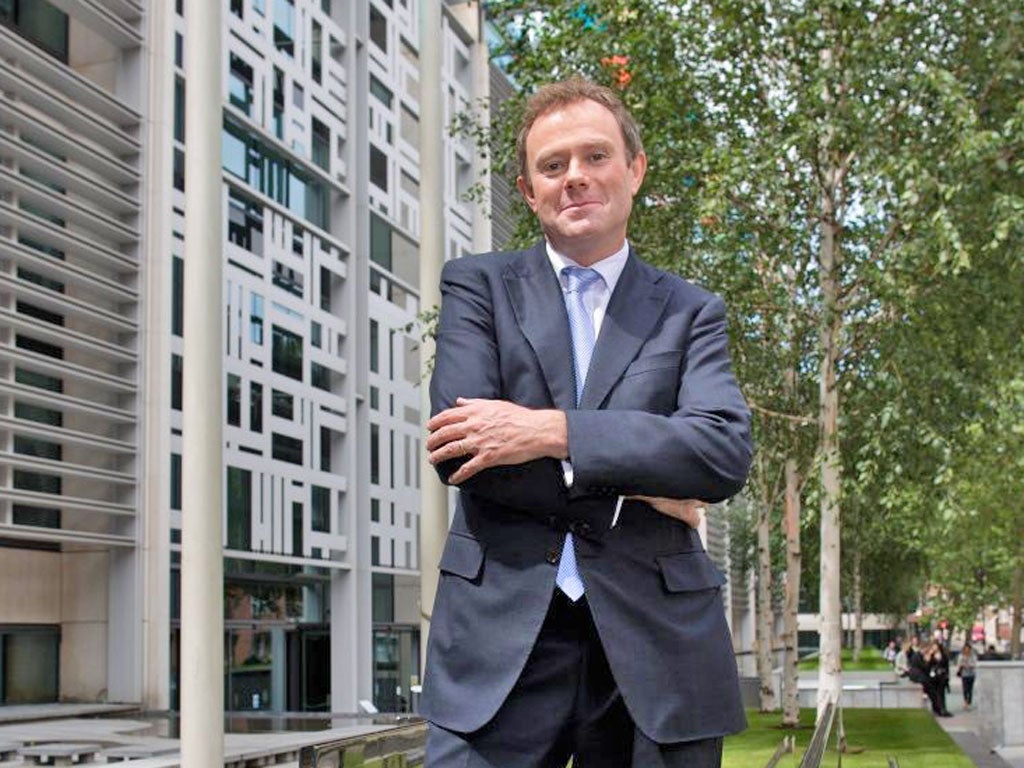The gay Tory minister who wanted to get married in church
Nick Herbert's a busy man who stands up for equal rights. By Nigel Morris

Your support helps us to tell the story
From reproductive rights to climate change to Big Tech, The Independent is on the ground when the story is developing. Whether it's investigating the financials of Elon Musk's pro-Trump PAC or producing our latest documentary, 'The A Word', which shines a light on the American women fighting for reproductive rights, we know how important it is to parse out the facts from the messaging.
At such a critical moment in US history, we need reporters on the ground. Your donation allows us to keep sending journalists to speak to both sides of the story.
The Independent is trusted by Americans across the entire political spectrum. And unlike many other quality news outlets, we choose not to lock Americans out of our reporting and analysis with paywalls. We believe quality journalism should be available to everyone, paid for by those who can afford it.
Your support makes all the difference.Holding one ministerial post is difficult enough, given the relentless demands of modern government, so filling two requires stamina, resilience and flexibility. It is lucky that Nick Herbert – Minister of State at both the Home Office and the Ministry of Justice – is a hyperactive sort who is routinely seen pounding the pavements between two offices half a mile apart.
As the Policing and Criminal Justice minister reporting jointly to Theresa May and Kenneth Clarke, he faces one of the trickiest dilemmas facing the Coalition: how to keep crime levels on their downward trajectory while cutting spending on police and the courts.
Although an instinctive loyalist, Mr Herbert strays well beyond Government policy in one area – marriage equality. He shares Nick Clegg's view that same-sex couples should be allowed to marry in church.
His attitude is not surprising. The first openly gay candidate to be selected by a Tory constituency party, he joined his partner, Jason Eades, in civil partnership three years ago.
It was the most important event in his life, he said, but he wished they could have been offered the choice of a church wedding.
"It's always been a matter of regret to me that the same options available to heterosexual couples were not available to me," he said.
"My view is churches should be permitted to offer same sex marriages if that is what their denomination allows. I believe in religious freedom. We should not be dictating to religious organisations what they do on their own premises or in their own ceremonies." His views will dismay traditionalist Tories, more than 50 of whom have publicly condemned the notion of gay marriage.
But Mr Herbert is unequivocal: "The longer this debate has gone on, the more strongly I have felt about this issue. Equal marriage is a straightforward matter of equality."
There is little prospect of respite for Mr Herbert after MPs head off for their summer break tomorrow as the Home Office is at the heart of efforts to ensure the Olympics runs smoothly – and will be on standby to cope with any emergency that could arise. The department has been deeply embarrassed by G4S's failure to provide adequate Olympic security but Mr Herbert insists the Government's rapid response – bailing the private company out with 3,500 soldiers – was proof that it's able to cope in a crisis.
"We are absolutely determined to deliver a safe games and an enormous amount of work and planning has gone into that. The action we took to ensure the Olympic site was properly guarded is a reflection that where we need to act, we will."
After the Games end, Mr Herbert could soon find his two jobs replaced by one – in the Cabinet. He is near the front of the queue for promotion and could have expected to become a Secretary of State had the Conservatives won outright.
Appointed to the Tory frontbench by David Cameron just seven months after becoming an MP, he appeals to both wings of the party describing himself as a reformer who is also a "deep Conservative".
Today, Mr Herbert will set out plans for the Police Professional Body, half drawn from outside the force, to oversee standards. The stance has sent relations plunging between the Police Federation, which represents rank-and-file officers, and Home Office ministers, with Ms May barracked and booed at the Fed's recent conference.
Mr Herbert retorts: "I'm a fierce defender of the British model of policing, but there are things that have to change… I am not in office to be loved, I'm in office to take those necessary decisions."
Join our commenting forum
Join thought-provoking conversations, follow other Independent readers and see their replies
Comments